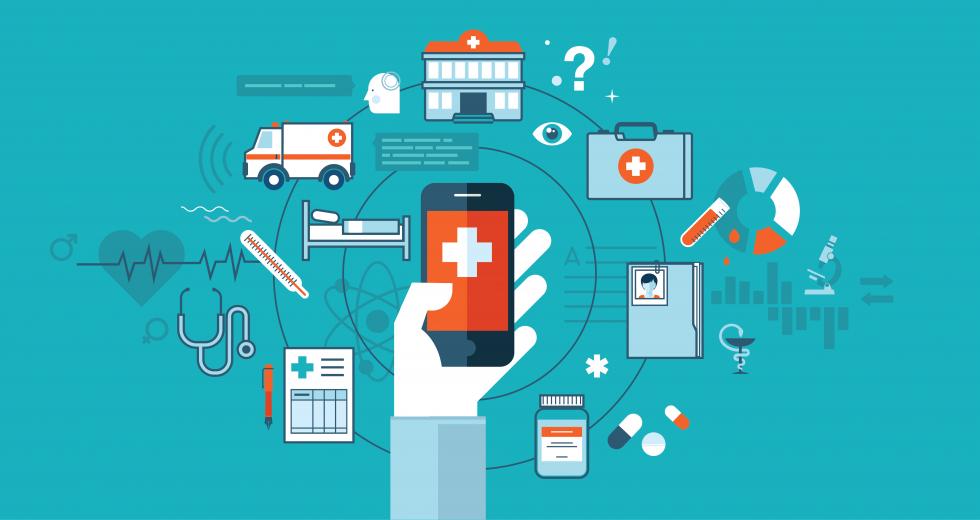The case study: It’s a staple in medical schools throughout the U.S., where students learn how to diagnose and treat various conditions through mock scenarios. For example, a middle-aged man walks into an emergency department with chest pain and the students must determine how to proceed. Facilitators currently deliver these case studies on paper — a whole lot of paper — or through computer software, where a student interacts with an onscreen “virtual patient.”
But can a doctor-in-training really grasp medical knowledge by sitting alone at a computer or by working out a problem on paper?
This question prompted John Morris, a former chief technology officer for Drexel University Sacramento, to create MedEdQR, a comprehensive medical application that delivers cases to the mobile devices — smartphones or tablets — of medical students anytime, anywhere. MedEdQR took the computer out of the equation and made case-based learning portable. Students can then work individually or in groups to gain skills and knowledge. The mobile technology also simulates real-world conditions, where doctors are always on the move with multiple priorities.
“I didn’t want the interaction to be between the student and computer,” Morris says. “I wanted it with students making decisions on the fly about what they want to do next. Walking around with the handheld device is fairly significant.”
Case builders use a web application to develop cases by simply creating a new one or cloning an existing one. They incorporate requisite information, including patient complaint and history, physical exam results and laboratory test values. Patient pictures, heart and lung ultrasounds, X-rays and MRIs can be added from the app’s built-in library, from the user’s personal library or from the internet. Students, faculty, facilitators and tutors can use smart mobile devices to access the case content by scanning a code, which can be embedded on paper, in booklets or attached to manikins.
Most of the time, staff members at medical schools are the ones building and modifying cases, but these employees aren’t doctors. For that reason, Morris — who taught at the university level for 25 years — designed MedEdQR for faculty, making it easy for them to build, assign, deliver and archive cases.
One assistant professor who knows about case-building is Catherine Tamse, who advises students in Drexel University Sacramento’s pre-medical and pre-health programs. After viewing a recent demo of MedEdQR, shesays she likes that the app can deliver information progressively, so students learn increasingly complex material from different perspectives. She also sees value in the app’s collaborative potential.
“It teaches them not only to be working independently, but also working with other people because that’s what health care is all about — being in a team setting, all the time,” Tamse says.
In 2000, Morris moved from academics to information technology at Drexel University in Philadelphia. There, he oversaw the university’s learning management system and set up online learning. By 2008, he had relocated to California to help open Drexel’s remote Sacramento campus, serving as both the chief technology officer and chief operating officer. He briefly retired in 2011, and then joined the UC Berkeley-UCSF Joint Medical Program.
Last year, he retired to launch MedEdQR LLC, paying for the development costs out of his own pocket. Morris says he invested about $100,000, and estimates it will take two years before he sees positive cash flow. He has partnered with Arck Interactive, a virtual programming team based in Portland, to develop MedEdQR in exchange for a small equity position in the company.
Now that version 1.0 of the application is finished, the next big challenge is showcasing the product at medical schools around the country to demonstrate its benefits.
Meanwhile, Tamse is already thinking about the potential of the app beyond the medical field. “I’m thinking in biological sciences,” she says. “We’re getting more into system- and case-based learning, as well as team-based learning formats. So it’s not just for medicine. But, for now, it will be a wonderful tool in medicine.”
Do you know an entrepreneur who has what it takes? Recommend their company for our “Startup of the Month” here.



